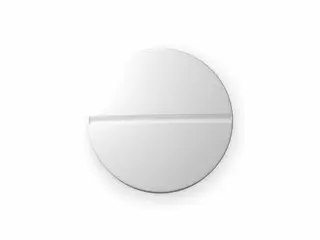Shop Amiodarone Online in the USA
| Package | Dosage | Price | Price per Dose | |
|---|---|---|---|---|
| Dosage: 200mg | ||||
| 120 pill | 200mg | $309.51 | $2.58 | |
| 90 pill | 200mg | $244.27 | $2.71 | |
| 60 pill | 200mg | $170.71 | $2.85 | |
| 30 pill | 200mg | $91.59 | $3.04 | |
| 20 pill | 200mg | $65.22 | $3.25 | |

Amiodarone Description
Overview of Amiodarone
Amiodarone is a potent medication primarily used to treat and prevent serious heart rhythm disorders, such as ventricular tachycardia and ventricular fibrillation. It belongs to the class of antiarrhythmic drugs, specifically classified as a Class III agent. Its unique mechanism involves affecting the electrical signals in the heart to restore normal rhythm and maintain it. Due to its effectiveness, Amiodarone is often prescribed for patients with life-threatening arrhythmias who have not responded well to other treatments.
How Amiodarone Works
This medication works by prolonging the phase of repolarization in the cardiac cycle. This action helps to regulate irregular heartbeats by stabilizing the electrical activity within the heart muscle. Amiodarone impacts potassium, sodium, and calcium channels, as well as the effects of the sympathetic nervous system, which collectively contribute to its antiarrhythmic properties. Despite its high efficacy, the drug’s ability to influence multiple cardiac pathways also accounts for its potential side effects and the need for careful monitoring.
Administering and Dosage
Amiodarone is available in various forms, including tablets and intravenous injections. For oral use, the dosage depends on the severity of the condition and the patient’s response. It is typically initiated with a loading dose, followed by a maintenance dosage to sustain therapeutic levels. Doctors closely monitor patients during treatment, adjusting doses to minimize adverse effects. Patients must follow their healthcare provider’s instructions carefully and attend regular check-ups to track the drug’s impact on heart function and observe any side effects.
Potential Benefits of Amiodarone
One of the key advantages of Amiodarone is its high success rate in controlling severe arrhythmias that may be resistant to other medications. Many patients experience a significant reduction in episodes of abnormal heartbeats, improving their quality of life and reducing the risk of sudden cardiac death. Its versatility allows for use in both acute emergencies and long-term management of chronic arrhythmias. Because of its effectiveness, Amiodarone is considered a critical tool in cardiology for managing complex rhythm disorders.
Possible Side Effects and Risks
Although Amiodarone is highly effective, it can cause a range of side effects. Some are mild, such as skin discoloration, photosensitivity, or corneal deposits, which often do not require discontinuation of therapy. However, more serious adverse effects can occur, including thyroid dysfunction, lung toxicity, liver damage, and cardiac problems. Long-term use necessitates regular monitoring, including chest X-rays, blood tests, and thyroid function tests. Patients need to be aware of these risks and communicate any new symptoms to their healthcare provider promptly.
Precautions and Considerations
Patients prescribed Amiodarone should inform their doctor about their complete medical history, especially if they have existing lung, liver, or thyroid conditions. Drug interactions are also common, as Amiodarone can affect or be affected by other medications, including blood thinners and certain antibiotics. Given its potential for serious side effects, Amiodarone therapy requires careful supervision by a healthcare professional. Pregnant or breastfeeding women should discuss the risks and benefits with their provider before starting treatment.
